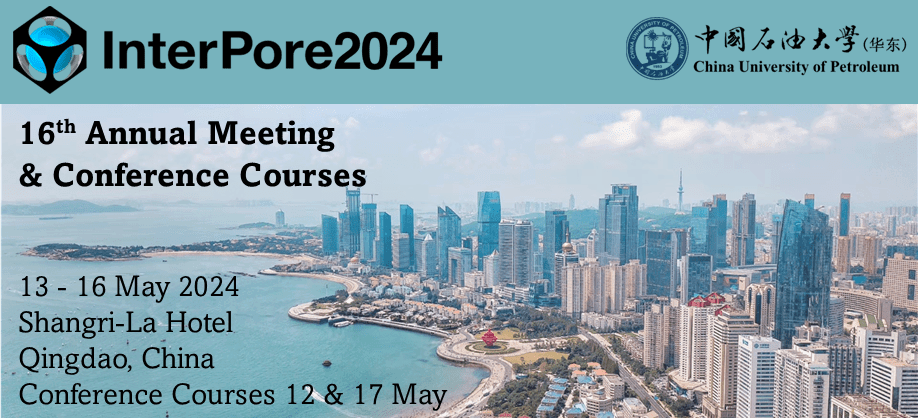Speaker
Description
A crucial aspect of maximizing hydrogen storage and recovery in aquifers is understanding the flow dynamics of hydrogen-water. By gaining insights into these interactions at the pore scale, researchers can develop more efficient strategies for optimizing storage capacity and extending the production life span in aquifers. This progress ultimately contributes to advancing underground hydrogen storage technologies for practical applications. This study uses computational fluid dynamics (CFD) simulation to investigate the impact of flow regime, pressure, compressibility, and hysteresis on the pore-scale flow patterns of hydrogen-water and recovery efficiency during underground hydrogen storage. The findings indicate the hydrogen-water displacement efficiency is significantly affected by the capillary number. We found that different flow rates are favorable during hydrogen injection and production, and that a medium flow rate corresponding to specific capillary numbers can minimize capillary and viscous fingering mechanisms, leading to improved storability and recovery factor. It was shown that the expansion of gas near the outlet of the porous medium alters the local flow patterns, specifically at low-pressure systems. This highlights that during low-pressure experiments, this effect may go unnoticed and that can potentially impact the storage and withdrawal efficiency of hydrogen. Additionally, the research reveals that trapped hydrogen bubbles can create a "self-cushion effect" during the cyclic process, which is eliminated at capillary numbers higher than 10^(-4). While no consistent trend was observed for the effects of this phenomenon on the hydrogen recovery factor, the results indicate a slight enhancement of hydrogen storability in the 3rd cycle due to the self-cushion effect.
| Country | Iran |
|---|---|
| Conference Proceedings | I am interested in having my paper published in the proceedings. |
| Student Awards | I would like to submit this presentation into both awards |
| Acceptance of the Terms & Conditions | Click here to agree |




.jpg)
